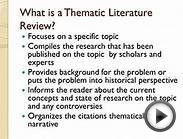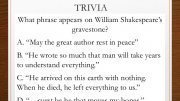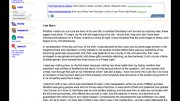1. Questions. Do not begin analysing the literature before clarifying in your own mind the research questions that will guide your dissertation. By formulating problems beforehand, you will avoid wasting hours in aimless reading. Know the issues of concern to you and consider the material through this lens alone.
 2. Wide search. In order to write a satisfactory literature review you must demonstrate your ability to search out relevant material from a wide variety of sources. Trawl online databases for useful dissertations and articles by using their abstracts to consider relevance, use all available university, college and departmental libraries, consult the web for extra resources and follow footnotes.
2. Wide search. In order to write a satisfactory literature review you must demonstrate your ability to search out relevant material from a wide variety of sources. Trawl online databases for useful dissertations and articles by using their abstracts to consider relevance, use all available university, college and departmental libraries, consult the web for extra resources and follow footnotes.
3. Significance over content. A common mistake in writing a literature review is to get bogged down in flat descriptions of the content of the many books, journals articles and reports that you have been reading. Relate only the directly relevant content, and spend as much time analysing the comparative significance of various sources for your own purposes.
4. Key themes. It will be necessary to identify, draw out, explain, interpret and evaluate key themes that emerge from the literature you have been studying. Thematic analysis will not only demonstrate a genuine engagement with the literature, but provide you with a scaffold on which to build the body of your text.
5. Critical attitude. Nothing must make it into your literature review which has not been scrutinised, questioned and dissected. A critical approach to all reviewed material is the means to ensuring the elimination of mere description and the proper emphasis on original analysis. Challenge assumptions, generate arguments and give reasons for your reactions.
6. Findings. Beyond the identification of key themes and issues, it will be necessary to reach certain findings in light of your analysis of the relevant literature. Try to draw working conclusions about the current balance of opinion concerning certain controversies, suggest what you believe to be the emergent or future trends in the field, identify deficiencies in current knowledge and relate your own position to that of others.
7. Valid sources. The need to consult a broad range of material has already been stated, but consider also the validity of the sources you review. In some subject areas classic texts retain their authority for literally thousands of years; cutting edge scientific research will need to be more mindful of the dangers of consulting obsolete data.
8. Categorisation. Key themes provide a natural structuring principle in a literature review, as do categories based on relevance to research questions, academic position, theoretical paradigm, chronology, and so on. Categorising reviewed material into ‘for’ and ‘against’ classes for certain controversies is one useful way to present findings.
Source: www.oxbridgeessays.com
You might also like:

Related posts:























